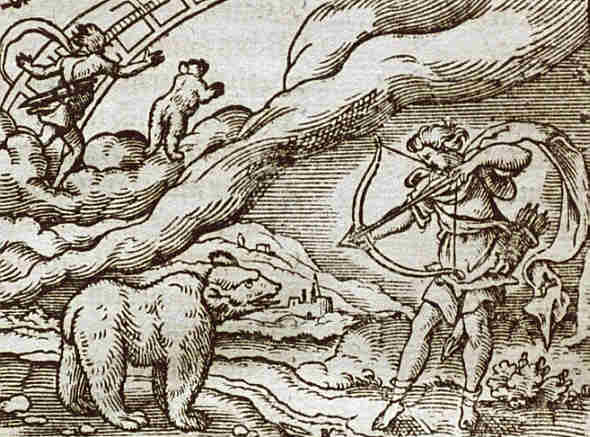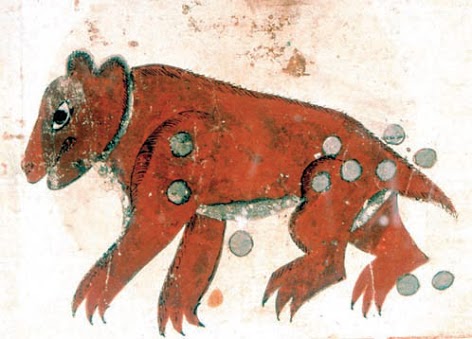Callisto
The Mythical Lover of Zeus Transformed into the Ursa Major Constellation in Greek Mythology

Callisto was one of Zeus's many conquests, the king of the gods in Greek mythology. As a result, she fell victim to the jealousy of Hera, Zeus's wife and queen. Hera transformed Callisto into a bear, who, according to myth, is the Great Bear (Ursa Major) seen in the night sky.
Callisto was the daughter of Lycaon, a powerful king of Arcadia, and some say she was also a nymph. Both Lycaon and his sons were known for their ruthless and untrustworthy nature. One day, Zeus, disguised as a humble worker, visited Lycaon to test his behavior.
When Zeus arrived in Arcadia, Lycaon offered a human sacrifice on Zeus's altar and served it to his guests. Zeus, disgusted by this blasphemy, immediately killed Lycaon and his sons with thunderbolts. Other versions of the myth state that Zeus killed the sons but transformed Lycaon into a wolf. Then, Zeus sent a great flood (known as Deucalion's Flood) to cleanse the earth.
After the death of her father and brothers, Callisto sought refuge with Artemis, the goddess of the hunt. Artemis was known for her purity and aversion to men. She lived in the forest, where she hunted with a chosen group of young women, all of whom had taken a vow of chastity and devotion to the goddess. However, Zeus saw Callisto sleeping in the forest. He disguised himself as a bear and managed to seduce Callisto, who then became pregnant. Fearing the consequences if Artemis discovered her pregnancy, Callisto managed to hide it from the goddess and her companions for about nine months. One hot day, the hunting group went to swim in a stream. As the young women undressed, Callisto could no longer hide her secret. The goddess felt rage at Callisto's violation of chastity, and despite the girl's pleas, Artemis expelled her from her group. Shortly after her exile, Callisto gave birth to a baby boy, whom she named Arcas.

Up to this point in the story, Hera had not taken any action to punish Callisto. However, the birth of her child was the last straw for the queen of the gods. Hera attacked Callisto and threw her down. Callisto begged Hera for mercy, but she watched in horror as her hands and feet were covered with hair and her nails grew until her transformation was complete. In her rage, Hera turned Callisto into a bear.
Callisto escaped deep into the forest of Arcadia, where she lived lonely and desperate. Although her human consciousness remained, she was fully aware of what had happened to her. However, with the bear's mouth, she could not speak, only growl, and thus could not warn hunters not to fear her.
Meanwhile, Zeus entrusted Arcas to one of his previous lovers, Maia, who would become the Pleiades constellation along with six other sisters. In the past, Zeus had united with Maia, and from her, Hermes, the Olympian messenger, was born.

When Arcas matured, he went into the forest of Arcadia to hunt. Callisto, still living there, immediately recognized her son. She followed Arcas out of curiosity and desired to be near him but knew she had to remain hidden. Suddenly, Arcas noticed her and began to chase the bear. Arcas was ready to kill Callisto with his bow and arrows when Zeus intervened. Zeus grabbed her and placed her in the sky, thus saving Arcas from the crime of matricide. Zeus turned Callisto into a constellation, the Great Bear (Ursa Major), and Arcas into the bright star Arcturus. (According to another version of the myth, Arcas became king of Arcadia as the heir of his grandfather Lycaon, and the land of Arcadia was named in his honor.)
Hera was not satisfied with the end of her rival's suffering after her husband's intervention. Therefore, she decided to visit her old nurse Tethys, who was the wife of Oceanus. Tethys sympathized with Hera and decided to forbid the new constellation from approaching and drinking from the ocean. This is why Ursa Major never sets in the ocean, like other constellations, but always remains visible above the horizon.
